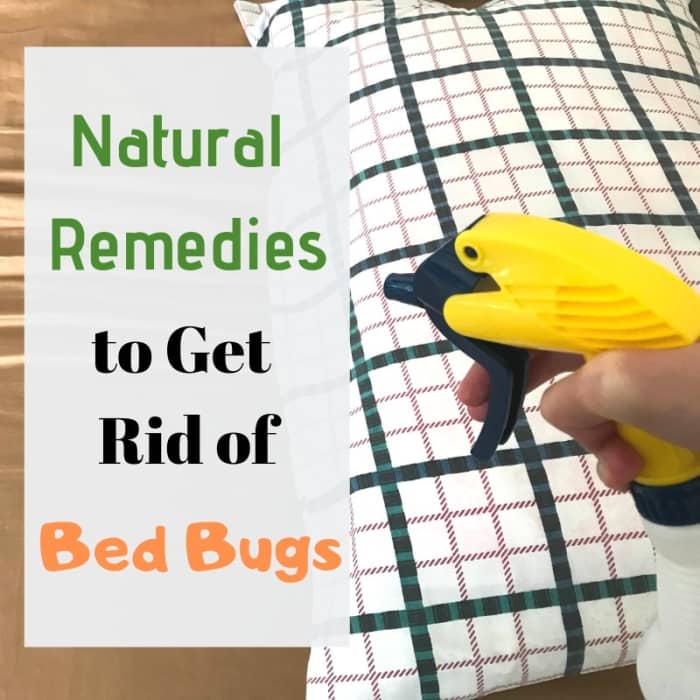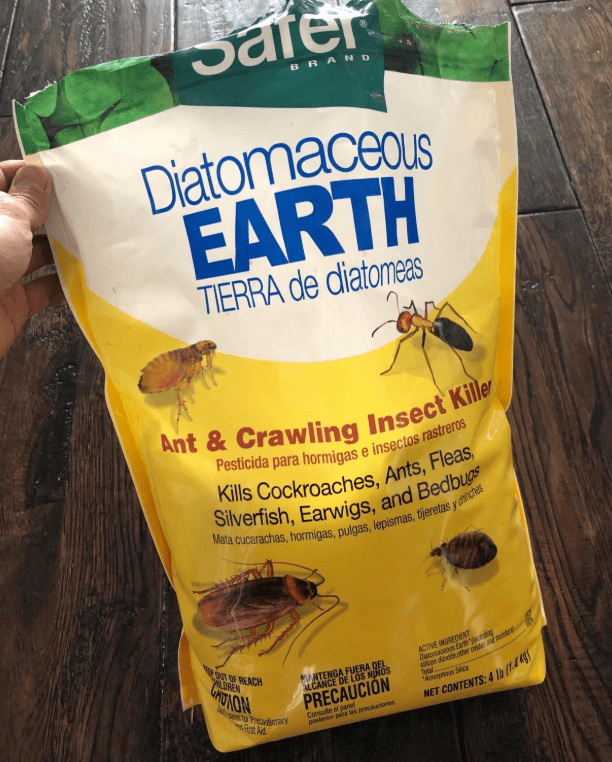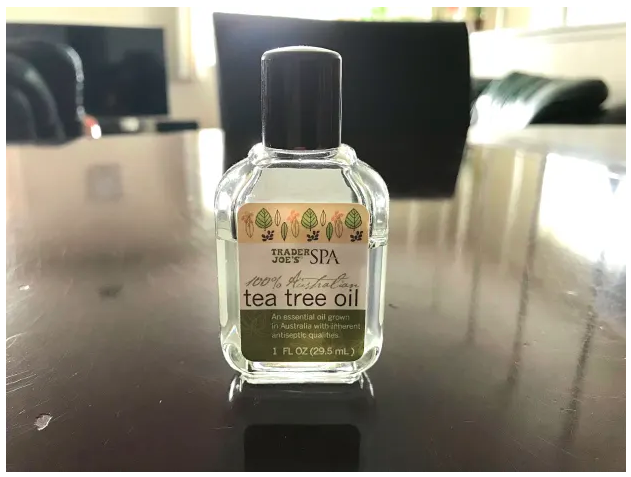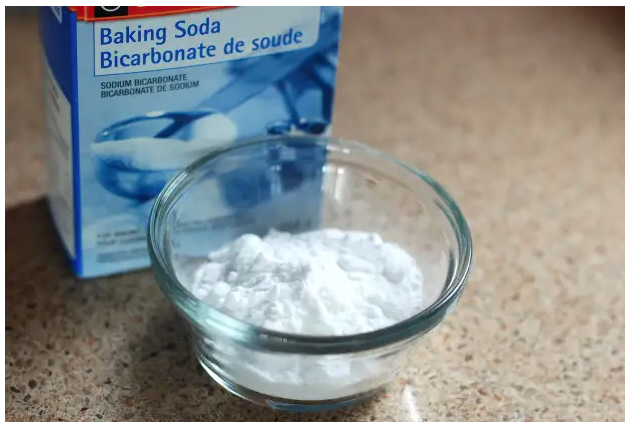12 Home Remedies for Bed Bugs That Actually Work
Sam is a DIYer and a clean freak. She loves tidying up her home and getting rid of pests, dust, and clutter.
No matter how clean your home is, you can still get a bed bug infestation. This is because bed bugs travel, and once they’re in your house, they feed off the sweat, blood, and carbon dioxide that humans and animals produce, so they stay forever.
Frequently washing your bed sheets may reduce their numbers, but using these strong natural home remedies below will eradicate them for good. I’ve tried every single one of these remedies and more when I had a bed bug infestation from buying an old mattress in college, so I’m sharing with you all of the methods that worked for me as well as some remedies that weren’t so effective.
Best Home Remedies for Bed Bugs
1. Vacuum
This is the first step before you use any of the remedies below. Remove clutter and vacuum the entire house thoroughly. This ensures that you remove the bed bugs as well as their eggs.
Make sure to vacuum upholstered furniture, mattresses, curtains, boxes, shelves, and carpets. Bed bugs love to hide in obscure places, to make sure to use the hose on your vacuum cleaner to suck them up in obscure nooks and crannies.
2. Use Extreme Heat or Extreme Cold
- Wash items on the hottest water setting: To kill off bed bugs immediately, wash your bedding, clothes, stuffed animals, and soft items in the washing machine on the hottest setting possible (above 140° Fahrenheit).
- Freeze non-washable items: Anything that you can’t toss into the wash should be put into plastic bags and thrown in the freezer. Leave the items there for at least 24 hours before removing and shaking them out to remove dead bedbugs and eggs.
- Steam clean: For big items like bed mattresses or furniture, use a steam cleaner on the hottest setting (above 140° Fahrenheit). Run the steam cleaner over the bed or upholstery several times, paying attention to nooks and crannies where bed bugs tend to hide.
3. Diatomaceous Earth
Diatomaceous earth is a naturally occurring sand that feels extremely rough and sharp to bed bugs. Bed bugs have weak exoskeletons, so crawling into or over diatomaceous earth shreds them to pieces.
To use, sprinkle D.E. on infected areas and leave for 24-48 hours. It’s a slow process, but it works! After 2 days, vacuum up the area to remove the D.E. and the dead bed bugs.
Don’t buy food-grade D.E because that doesn’t contain enough arsenic and lead to be effective. I recommend getting a safe D.E. designed specifically for pest control, such as the Safer Brand Diatomaceous Earth. I swear by this stuff! It is safe to touch and doesn’t affect breathing, but please keep out of reach of animals and children as ingestion will poison them.
4. Borax
Borax is a natural household cleaning item that kills bed bugs by suffocating them. To use, sprinkle a generous amount of borax over your mattress. Leave it for at least 24 hours to suffocate the bed bugs. While bed bugs won’t eat the borax, they will have a hard time breathing when they’re deluged in the substance.
You can also add borax to the washing machine when washing your clothes. The acid is a salt and will dry them out.
I recommend purchasing the Millard brand of borax powder because it is finer than other brands, which helps with the suffocation. Other brands are too course and allow bed bugs to crawl through the spaces.
5. Rubbing Alcohol
Yes, alcohol is strong enough to kill almost anything, including bed bugs and bed bug larvae and eggs. If you use an alcohol dilution of 90% or more, you can kill bed bugs on contact. I like to put alcohol in a spray bottle and spray bed bugs when I spot them as well as hiding places, such as nooks and crannies where they lay their eggs.
Note, however, that inhaling alcohol is toxic to your health and it is highly flammable, so use with caution.
6. Tea Tree Oil
Tea Tree Oil is a healthier alternative to rubbing alcohol and is anti-fungal, anti-bacterial, and anti-viral. It is not toxic to inhale, so you can spray as much as you want, although it does have a strong scent that can be off putting.
While tea tree oil cannot kill all bed bugs on contact, but it is a strong deterrent and masks the smell of sweat, which bed bugs are attracted to. I recommend using undiluted tea tree oil and spraying your bed sheets and furniture with it. Some people who are sensitive to the smell can dilute it just a bit with water.
7. Hydrogen Peroxide
This can be used as a contact killer to spray on bed bugs, but it is not as deadly as isopropyl alcohol and it stains because it is a bleaching agent. I would recommend going with straight rubbing alcohol if you want a contact killer spray over hydrogen peroxide.
8. Lavender and Peppermint Oil
For some reason, bed bugs as well as many other insects are repelled by the scent of lavender and peppermint. A lavender and peppermint essential oil spray may not kill bed bugs on contact, but the spray does deter them from your home.
Mix 10 drops of lavender, 10 drops of peppermint oil, and 20 drops of water in a spray bottle. Spray liberally where you think bed bugs may reside.
I recommend going to a health food store like Whole Foods, Sprouts, or Nugget to purchase essential oils as there are many knock-off brands online that sell diluted oils. If you must buy online, I trust Healing Solutions. I use their 100% Pure Lavender Oil and 100% Pure Peppermint Oil, which I purchase either through Amazon or through health food stores.
9. Baking Soda
Sprinkling baking soda over infected areas makes the area inhospitable to bed bugs because baking soda dries them out. This method will not kill them, and it may be inconvenient because you have to vacuum up the baking soda afterwards, but it works as a temporary solution to scare them off if you have nothing else on hand.
10. Bleach
Bleach kills bed bugs on contact by oxidizing their outer shell. Bleach is an extremely harsh chemical so it is effective as a contact spray, but it stains, so you shouldn’t use this on your furniture, bed sheets, or clothes.
11. Vinegar
Vinegar is an effective contact treatment, but it must be used in conjunction with other home remedies on this list. I use undiluted vinegar and spray on furniture and in cracks on the floor where bed bugs tend to hide. Vinegar does kill bed bugs, but it doesn’t kill larvae, so be sure to vacuum or use D.E. in addition to spraying with vinegar.
12. Cinnamon
Many people believe that using a spray with cinnamon leaf oil can kill bed bugs, but the smell of cinnamon can only deter at best.
This article is accurate and true to the best of the author’s knowledge. Content is for informational or entertainment purposes only and does not substitute for personal counsel or professional advice in business, financial, legal, or technical matters.
___
https://dengarden.com/pest-control/home-remedies-for-bed-bugs






